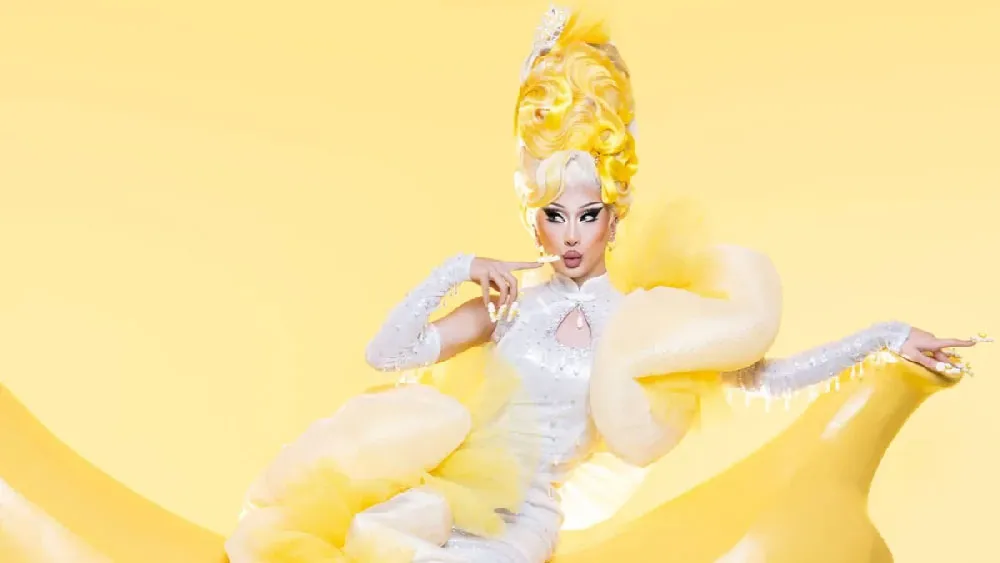March 27, 2014
History of Lesbian Avengers Chronicled in "Eating Fire"
Winnie McCroy READ TIME: 5 MIN.
When Kelly Cogswell moved to New York City from Kentucky in 1992, she was an ex-Southern Baptist who had just come out as a lesbian. A few short months later, she was on the front lines of the gay civil rights movement, participating in direct actions, facing cops on Fifth Avenue and helping organizing 20,000 dykes for a march on Washington, D.C., to eat fire in front of the White House.
Her new memoir, "Eating Fire" chronicles the '90s Culture War to the 00's War on Terror, and Cogswell's life story. This is one of the first in-depth memoirs of its kind to deal with the Lesbian Avengers, an organization that began in New York 20 years ago, and then spread to 60 chapters all over the U.S. and Canada, with huge chapters in London and Australia. Despite its proliferation, the Avengers are not well remembered today. This prompted Cogswell to begin her book.
"A couple of years ago I went online looking for info about the Avengers, and there was nothing there. It was like it never happened," said Cogswell.
"A worldwide lesbian movement was erased. It was agonizing really because what, do you just start it all over again? In terms of cultural space lesbians still barely exist. So I had the brilliant idea to just write about it, so it didn't disappear, so that people knew they if they wanted to do lesbian activism, they had something to build on."
At once streetwise and wistful, "Eating Fire" is a witty and urgent coming-of-age memoir as well as the first in-depth account of the influential Lesbian Avengers. A rare insider's look at the process and perils of street activism, Cogswell's story is an engaging blend of picaresque adventure, how-to activist handbook, and rigorous inquiry into questions of identity, resistance and citizenship. And while it may have sprung from altruistic roots, the same can't be said for Cogswell's initial interest in the Lesbian Avengers.
"I went for the girls," she admitted. "I want to say it was for something lofty like the fight for equality and justice, but I just wanted to see what was going on."
She soon found herself participating in direct actions like handing out balloons by a Queens elementary school to protest the dissent around the Rainbow Curriculum, created to teach kids to respect each other.
Only a few pages out of the 400 mention lesbian and gay people, but it was enough to get it denounced as "the gay curriculum" among people in the Christian Coalition, who tried to pit blacks, the "true minorities," against gays.
"The other action that was important for me was learning to eat fire, and going onto Fifth Avenue as part of a march calling attention to these anti-gay murders in Oregon to do it," said Cogswell. "Stepping into public spaces as a lesbian was unimaginable then. There were occasionally 'womyn's marches,' but I didn't even get that they were lesbian events."
Being a member of the Lesbian Avengers did shift from a social thing to something really important for Cogswell. Not only was she coming out herself, but she was also beginning to realize that lesbians were targeted, and are still targeted.
A Voice Still Needed for Lesbians
Last month, lesbian couple Britney Cosby and Crystal Jackson were on their way to a Mardi Gras celebration in Galveston, Texas, when Cosby's father, James Cosby, allegedly shot them to death and dumped their bodies near a dumpster in Port Bolivar.
The press coverage of this crime was minimal -- as are realistic depictions of lesbians in the media overall. This prompted Cogswell to write her tome.
"Lesbians rarely appear on TV or in movies, and when we do it's so unrealistic it's almost mind-boggling," said Cogswell. "It will either be some sitcom with a femme character playing softball, or an isolated lesbian character, or a lesbian with a crush on a boy -- like relationships between women aren't serious. Gay male characters usually make fun of lesbian characters, who are usually seen either as butch and ugly, or femme and not really lesbians."
Still, Cogswell feels that groups like the Lesbian Avengers were among the first to employ the model of DIY media coverage, "shaping the image we had of ourselves and getting the message out there. The Avengers did a combination of direct action and art, and were really in control of their own message."
This strategy had a very contemporary sensibility, and has since been used by many other groups, from the Arab Spring to Occupy Wall Street. Although the Lesbian Avengers actions are largely limited to annual Dyke Marches around Gay Pride, "Eating Fire" helps keep the history of this seminal lesbian group alive.
Cogswell will do readings from her book this summer in Kentucky and New York, and is happy to go "anywhere anyone invites me and can provide transportation."
"I wrote the memoir because I wanted to get the story of the Avengers out there, and to put it into the context of other civil rights movements," said Cogswell. "We should all know how we relate to this larger thing that's happening around us, and be able to speak out on these issues."
"Eating Fire" is available for $19.95 at University of Minnesota Press.
Winnie McCroy is the Women on the EDGE Editor, HIV/Health Editor, and Assistant Entertainment Editor for EDGE Media Network, handling all women's news, HIV health stories and theater reviews throughout the U.S. She has contributed to other publications, including The Village Voice, Gay City News, Chelsea Now and The Advocate, and lives in Brooklyn, New York.


